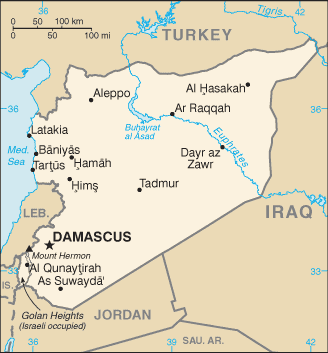While the Syrian ceasefire is mostly holding, and has been extended by the US and Russia, a lot of the major goals that the ceasefire were supposed to lead to have not been accomplished. Aid shipments aren’t flowing, which the US is blaming Russia for.
 Russia has its own grievances though, noting that a major part of the ceasefire was to facilitate joint targeting against the Nusra Front, and a big part of that was the US convincing the “moderate” rebels to stop working closely with Nusra. That’s not happening.
Russia has its own grievances though, noting that a major part of the ceasefire was to facilitate joint targeting against the Nusra Front, and a big part of that was the US convincing the “moderate” rebels to stop working closely with Nusra. That’s not happening.
US officials made a statement demanding the rebels stop working with Nusra, threatening “dire consequences,” but nothing has really come of it. A big strain on the last ceasefire was that many strikes against Nusra, not a party to the ceasefire, were against bases that were co-owned by Nusra and rebels that were parties to the ceasefire. The rebels often presented this as a “violation,” and the US often agreed, but it was clear the “marblization” of the rebellion with terrorist groups was a source of strain.
This new ceasefire acknowledged that problem, but so far there is no sign that it is being resolved, and similarly no sign that the rebels are taking the US threats credibly. Whether the US intends to follow through with the consequences remains to be seen.
Another source of disagreement is the language of the ceasefire itself, as Lavrov has demanded that the US permit the publication of “the entire package” of the ceasefire agreement. So far, only small fractions of the terms of the deal have been made public.
That’s no small dispute, and indeed Russia is reporting that the planned UN Security Council meeting on Syria was cancelled entirely because the US didn’t want to make the details of the ceasefire public.
Russian Ambassador to the UN Vitaly Churkin insisted that it was impossible to “brief” the UN Security Council on the details of the ceasefire so long as so much of it remains secret at the behest of the US. The US confirmed this, and unnamed officials told the press that “operational security” required a substantial amount of the ceasefire to remain secret.


